We need a feminist palaeoanthropology that finally listens to all of us
Palaeoanthropology – the study of human origins – might seem far removed from the everyday struggles of contemporary life. But the questions it asks are profound: Who are we? Where do we come from? What makes us human?
Those questions are not neutral. They’ve been answered, historically, by a small, privileged subset of people, mostly white men from the Global North, often working in former colonial territories. And their answers have too often echoed the hierarchies of the societies they came from, casting Europe as the pinnacle of evolution, Africa as primitive, and women and people of colour as peripheral.
I came to palaeoanthropology as a white woman from the United States, passionate about science and determined to do meaningful work. When I first came to South Africa in 1995, just one year after the end of apartheid, I was stepping into a field deeply shaped by colonial history and scientific racism, though I didn’t yet fully understand that. I was simply excited to study fossils.
But over time, my perspective shifted. I learned more about how human origins research in Africa had long involved the extraction of both fossils and knowledge, with little benefit or recognition for the people and communities where that work took place. I learned how Indigenous people had been studied, displayed, even dissected – reduced to specimens in the name of ‘science’. I learned that women, especially Black women, remained drastically underrepresented in the field. And I experienced the toxic gender dynamics myself.
Palaeoanthropology, like many fields, has a serious problem with sexism. Research has revealed a high prevalence of harassment and discrimination in the field, particularly targeting women and junior researchers. As someone who faced sexual harassment during my own postgraduate years, I later found myself helping lead the effort to hold a prominent academic accountable. That experience was painful, and transformative. It made clear to me just how entrenched the systems of power and exclusion in our field really are.
But it also fuelled my determination to change them.
In 2020, I co-authored a paper with Sheela Athreya tracing how colonialism shaped the very foundations of human origins research in Asia and Africa. We showed how early scientists used evolutionary narratives to naturalise racial hierarchies, treating African and Asian fossils, and people, as evidence of primitiveness, and reinforcing the idea that modernity was European. Those narratives didn’t just reflect colonial attitudes; they helped produce and legitimise them. And they continue to shape the field today.
Too often, African scholars are still marginalised in African palaeoanthropology. Research is conducted through ‘helicopter’ practices - where foreign teams fly in, collect data, and leave - with little local involvement or investment. Opportunities for women of colour are limited by both structural inequalities and hostile environments. When those of us who speak out about these issues are called ‘ambitious’, ‘difficult’, accused of ‘centring themselves’ or having an ‘agenda’, it’s a reminder of how resistance to transformation is often cloaked in the language of objectivity. And let’s be honest: these are classic tools used to silence women, especially women who push for change.
So what would a truly inclusive, feminist palaeoanthropology look like?
It would be one that recognises how racism, sexism, and colonial legacies continue to shape who gets to ask questions, who gets heard, and who gets credit. It would actively support women and other marginalised scholars, not just in theory, but in funding, mentorship, authorship, and leadership. It would centre collaboration over extraction, reciprocity over prestige, and community engagement over gatekeeping.
At the Human Evolution Research Institute (HERI) at the University of Cape Town, we are doing just that. Our #CampHERI programme creates space for women students to share experiences, build skills, and grow confidence. We’ve helped launch PANACHE – the Pan-African Consortium for Human Evolution – to ensure that African scholars are not only participants but leaders in shaping research questions and priorities. Through the PANACHE Training Network, we’re building a continent-wide network of early-career scientists with the tools and support to thrive.
We’ve also taken seriously the need to change the stories we tell. For the centenary of the Taung Child, the first truly ancient hominin discovered in Africa, we co-edited a special issue of the South African Journal of Science that centres African perspectives, research, and reflections on ethics and belonging. And through initiatives like the co-created HUMANITY exhibition at Iziko South African Museum, which directly tackles issues of social justice and colonial legacies of the discipline, and a 2025 Wenner-Gren Foundation–funded workshop on socially responsive practice in palaeoanthropology, we’re engaging directly with the communities whose histories we study – not as subjects, but as partners.
This is not about political correctness or ticking boxes. It’s about creating better, more ethical science. Diverse teams deliver better science: they ask different questions, challenge old assumptions, and produce richer, more nuanced insights. Research that builds capacity and respects communities is more sustainable, more just, and more impactful. And a discipline that values all its members equally is one that can actually live up to the ideals it claims.
Do I have an agenda? Yes, but I prefer to call it a vision. A vision of a discipline where all voices are heard and valued, and at times centred. Where everyone has equal opportunities to lead and to thrive. Where the knowledge we produce reflects the full diversity of our shared human story. This vision includes not only those within academia, but those outside of it - people whose ancestors were studied without consent, whose stories were erased or misrepresented, and who still live with the consequences. If we claim to study what it means to be human, we must start by honouring the humanity of those around us.
This is what a feminist palaeoanthropology must become. And this is the future we are working to build.

